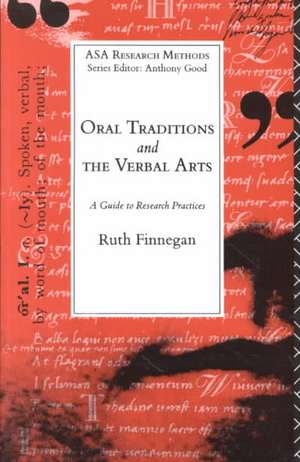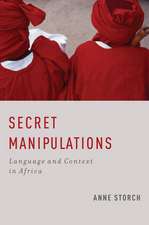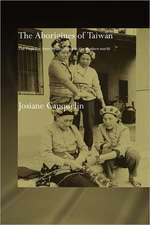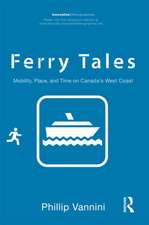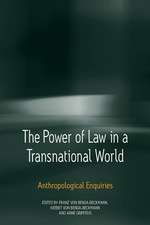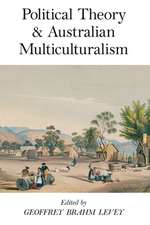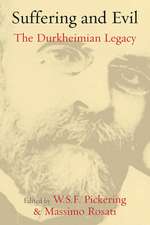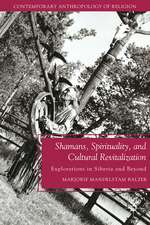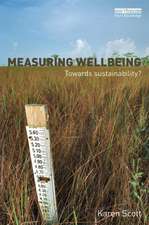Oral Traditions and the Verbal Arts: A Guide to Research Practices: The ASA Research Methods
Autor Ruth Finneganen Limba Engleză Paperback – 5 dec 1991
Designed as a practical and systematic introduction to the processes and problems of researching in this area, this is an invaluable guide for students, and lecturers of anthropology and cultural studies and also for general readers who are interested in enjoying oral literature for its own sake.
| Toate formatele și edițiile | Preț | Express |
|---|---|---|
| Paperback (1) | 446.53 lei 6-8 săpt. | |
| Taylor & Francis – 5 dec 1991 | 446.53 lei 6-8 săpt. | |
| Hardback (1) | 1000.27 lei 6-8 săpt. | |
| Taylor & Francis – 27 feb 2017 | 1000.27 lei 6-8 săpt. |
Preț: 446.53 lei
Nou
Puncte Express: 670
Preț estimativ în valută:
85.44€ • 89.21$ • 70.72£
85.44€ • 89.21$ • 70.72£
Carte tipărită la comandă
Livrare economică 04-18 aprilie
Preluare comenzi: 021 569.72.76
Specificații
ISBN-13: 9780415048415
ISBN-10: 0415048419
Pagini: 304
Dimensiuni: 138 x 216 x 17 mm
Greutate: 0.39 kg
Ediția:New.
Editura: Taylor & Francis
Colecția Routledge
Seria The ASA Research Methods
Locul publicării:Oxford, United Kingdom
ISBN-10: 0415048419
Pagini: 304
Dimensiuni: 138 x 216 x 17 mm
Greutate: 0.39 kg
Ediția:New.
Editura: Taylor & Francis
Colecția Routledge
Seria The ASA Research Methods
Locul publicării:Oxford, United Kingdom
Recenzii
`... enormous utility to anyone - beginning or experienced - undertaking gathering of verbal art in the field or attempting to deal with verbal art gathered by others.' - Anthropos
Cuprins
1 Introduction: scope and terminology 1.1 Preview 1.2 ‘Language’, ‘speech’ and ‘text’: some initial questions 1.3 Some central terms—accepted and disputed 1.4 ‘Text(s)’: a special case 1.5 The interest of the problems 2 Theoretical perspectives 2.1 The role of theory 2.2 Continuing methodological tensions 2.3 Background to studies of oral tradition and verbal art 2.4 Influential methodologies and theories 2.5 Current trends 3 Some prior issues and practicalities 3.1 Some strategic questions 3.2 Background preparation 3.3 Recording equipment 3.4 Relevance for archive research 4 Collecting, recording and creating texts: preliminaries and mechanics 4.1 Some initial techniques and provisos 4.2 The settings for collecting and recording 4.3 Making and keeping records 4.4 Preliminary processing 5 Observing and analysing performance 5.1 Concepts of ‘performance’ and their significance 5.2 Audiences, performers, participants 5.3 Other components of performances 6 Production, functions and ideas 6.1 Composition, transmission and memory 6.2 Social and economic position of participants 6.3 Verbal art, oral tradition and functions 6.4 Local aesthetics and thought 7 Genres and boundaries 7.1 Approaches to classification 7.2 Some crucial boundaries: or are they? 7.3 Differentiating and studying genres 7.4 Some common genre terms and controversies 7.5 Cross-cutting themes 7.6 Final points 8 Analysing and comparing texts: style, structure and Content 8.1 Textual analysis: problems and opportunities 8.2 Variation, typology and comparison 8.3 Structure and structuralist methods 8.4 Stylistic features and problems 8.5 Relevance of literary analysis and written literature 8.6 Specialist techniques: counting, content and computers 8.7 The quest for ‘meaning’ 9 Texts in process: translation, transcription and Presentation 9.1 Translating 19.2 Transcription and representation 9.3 The presentation and dissemination of texts and performances 9.4 Conclusion 10 Ethics
Notă biografică
Ruth Finnegan is Professor in Comparative Social Institutions at the Open University. She was editor of the anthropological journal Man from 1987 to 1989, and is the author of many books and articles, including Literacy and Orality, Oral Literature in Africa and Oral Poetry.
Descriere
Provides up-to-date guidance on how to approach the study of oral forms and their performances, examining both the practicalities of fieldwork and the methods by which oral texts and performances can be observed, collected and analysed.
